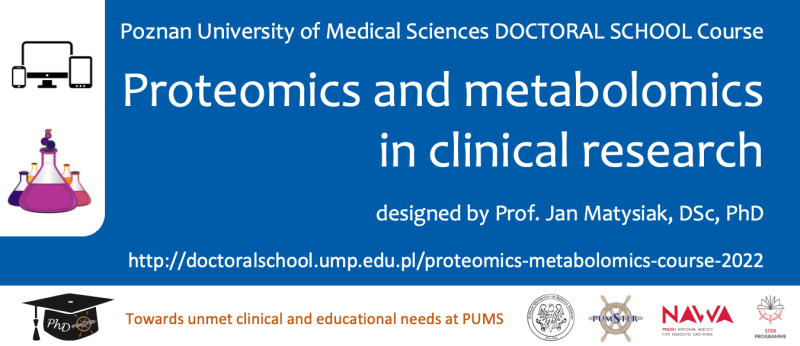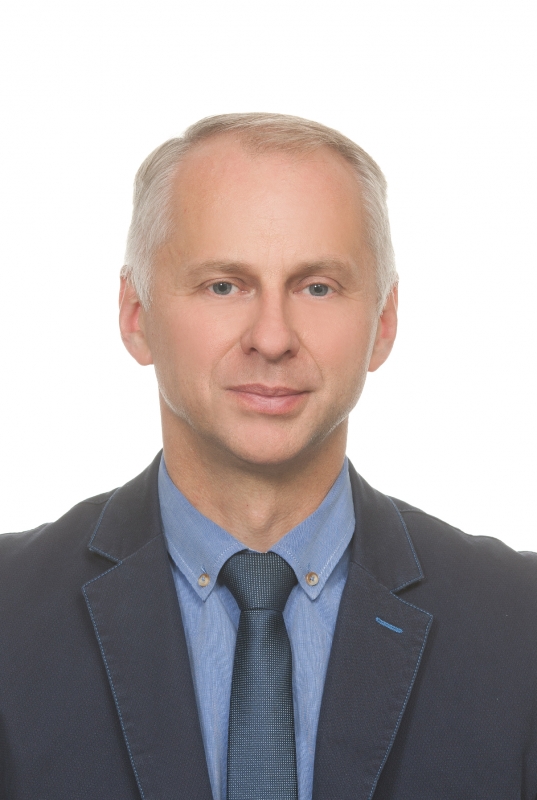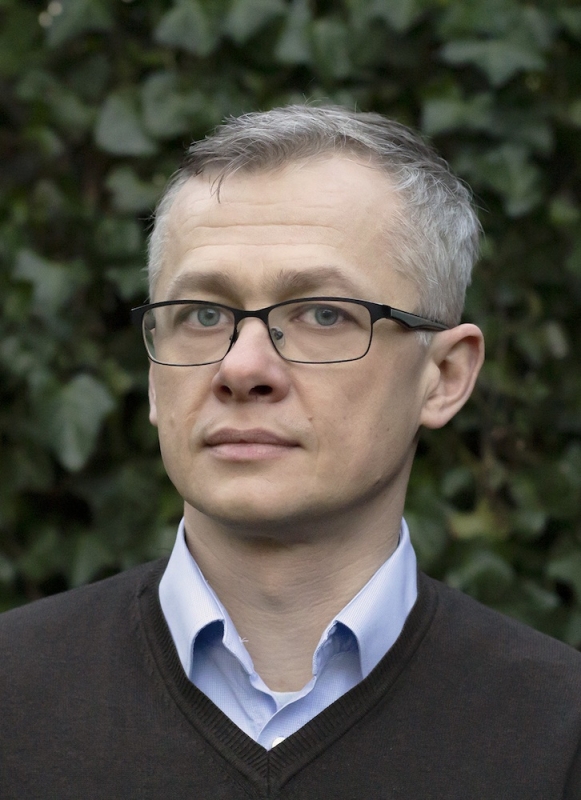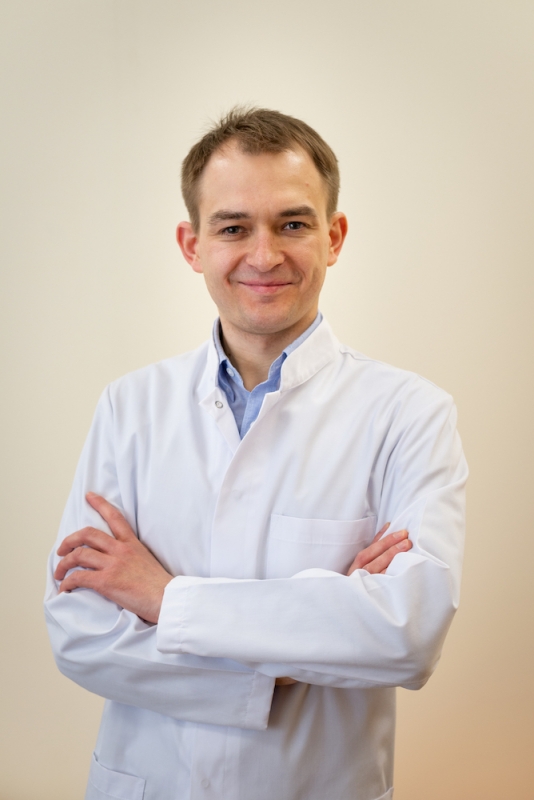Proteomics and Metabolomics Course 2022
Introduction

⚠ Due to unexpected health problems of our speakers we are sorry but we have to cancel today’s lectures. They will be given next week, Tuesday 28th June within the same schedule.
Dear PhD Students, you will soon have another attraction, which at the same time constitutes a milestone in the implementation of the NAWA STER program. Under the STER program in 2021-2023, our Doctoral School implements the PUMSTER project, leading to our Doctoral School's internationalization.
On May 25 and 26, and then June 1, 2, 9 and 21, DS will organize the proteomics and metabolomics course, which is long-awaited by many of you and certainly perfectly fitting into the project of meeting the unmet needs of our Doctoral School.
This 30-hour course was designed by Prof. Jan Matysiak, DSc, PhD, who invited outstanding foreign and domestic speakers to conduct the course under the title Proteomics and metabolomics in clinical research.
This course is unique in many aspects because, so far, it has not been possible to gather so many outstanding specialists under a common banner and fix this complex and topical subject in such a comprehensive manner within 30 hours.
Before us are lectures, seminars, and workshops by Professor Christian Schmelzer on "Introduction to proteomics and mass spectrometry", and Timothy Garrett on "Introduction and application of metabolomics for clinical research".
The other speakers are scientists known to many of us are:
- Mikołaj Zaborowski PhD,
- Katarzyna Ożegowska PhD,
- Prof. Paweł Wiczling DSc, PhD,
- Prof. Wojciech Miltyk DSc, PhD
- Assoc. Prof. Bartosz Sokół DSc, PhD
- Prof. Jan Matysiak DSc, PhD
who will discuss the following topics: "Publically available datasets in the analysis of proteomic and transcriptomic data in oncology", "The use of metabolomics in clinical trials and medical practice", "Proteomics and metabolomics in clinical research - the introduction", " Hierarchical models and bayesian statistics in omics-based research" and "An interdisciplinary approach to the proline metabolism ".
A specific festival of topics under the common title of "Characteristics and management of metabolic diseases - from systems biology to clinical perspective" was prepared by Prof. Paweł Bogdański DSc, PhD with his associates. Therefore, we will have the possibility to participate in 5-hour workshops and seminars led by Professor Paweł Bogdański and his Team:
- MSc Joanna Michałowska,
- MSc Katarzyna Pastusiak,
- Assoc. Prof. Monika Szulińska DSc, PhD
on the following topics: "Obesity as the pandemic of the 21st century", "Clinical trials in a nutshell", "Implication of genetic variants in overweight and obesity", "Serum proteomic profile in insulin-resistant Individuals", and " Gut microbiota and obesity ”.
Dear PhD Students, take advantage of this unique opportunity and the rich program of the Course.
Invited Speakers
Paweł Bogdański
prof. dr hab. Paweł Bogdański – a head of The Department of Obesity and Metabolic Disorders Treatment and Clinical Dietetics, Poznan University of Medical Sciences. Internal medicine physician and hypertensiologist who is specializing in a comprehensive obesity treatment for over 20 years. President of the Polish Society for the Treatment of Obesity. An author of over 300 scientific publications in the field of medicine and metabolic disorders.
Timothy J. Garrett

Dr. Garrett is an Associate Professor and Chief of Experimental Pathology in the Department of Pathology, Immunology and Laboratory Medicine at the College of Medicine at The University of Florida. In addition to his role as chief, Dr. Garrett has served as PI or Co-PI on grants and contracts totaling over $39M of funding from institutions such as the NIH, JDRF and the ADA. As an associate professor, Dr. Garrett has supervised the research of 18 graduate students and 3 post-doctoral students during the past 15 years, and received the term professorship in 2018, an exemplary teacher award in 2019, and the IFAS high impact publication in 2016. Research in the group has led to over 100 peer-reviewed publications with an h-index of 27 and an i10-index of 72. His publications have resulted in over 3000 citations and over 100 lectures in 6 countries relating to his research findings. Recent discoveries of note include the development a rapid spray system for imaging mass spectrometry (Patented), the development of open source processing tools for lipid identification (LipidMatch), an improved technique for identification of low abundant metabolites (Iterative Exclusion-Omics), and new work that will translation prostate cancer biomarkers to clinical diagnostics.
Dr. Garrett received his undergraduate degree from the University of Georgia in Chemistry and his PHD in Chemistry from the University of Florida. As an undergraduate student, he received the Howard Hughes Fellowship in 1998 with Dr. Jonathan Amster. As a graduate student, he worked on the development and design the first imaging mass spectrometry ion trap instrument through a partnership with Thermo (now Thermo Fischer Scientific) and studied the disposition and characterization of phospholipids in brain tissue. He received the Crow-Stasch Award for graduate research in 2006 and the International Journal of Mass Spectrometry award for publication in 2007. He joined the faculty at the University of Florida in 2006, where he has developed a research program in metabolomics, lipidomics, and small molecule quantitation for clinical and biological research using mass spectrometry approaches. He is also currently Co-Editor-in-Chief for the Journal of Mass Spectrometry and Advances in the Clinical lab as well as on the editorial board for PLoSOne.
Joanna Michałowska
mgr Joanna Michałowska - a dietetician and PhD student in The Department of Obesity and Metabolic Disorders Treatment and Clinical Dietetics, Poznan University of Medical Sciences, working on a doctoral dissertation investigating the association of various gene variants and obesity. For several years she is professionally involved in work in clinical trials, mainly associated with metabolic disorders.
Wojciech Miltyk

Wojciech Miltyk - pharmacist, professor of pharmaceutical sciences. Head of the Department of Analysis and Bioanalysis of Medicines at the Medical University of Bialystok (MUB). Dean of the Faculty of Pharmacy with the Division of Laboratory Medicine, MUB, member of the University Council of the MUB, chairman of the Convent of the Deans of the Pharmacy Faculties in Poland, chairman of the Polish Pharmaceutical Society Białystok Branch. In 1995 he graduated from the Faculty of Pharmacy at the Medical University of Bialystok, In 2000 he obtained the degree of doctor of pharmaceutical sciences at the Silesian Medical Academy in Katowice for his doctoral dissertation under the guidance of prof. Jerzy A. Pałka "The regulatory role of 1-pyrroline-5-carboxylic acid in collagen biosynthesis." In 2000–2003 he was awarded scientific internships at the University of North Carolina at Chapel Hill and the National Cancer Institute in Frederick. In 2003 he obtained in honors the first-degree specialization in pharmacy. Based on scientific achievements and the dissertation "Assessment of molecular mechanisms of metabolic disorders in pathological cell lines to search for molecular targets for new pharmacological strategies" in 2012 he was awarded the degree of habilitated doctor of pharmaceutical sciences. In 2018 he obtained the title of professor of pharmaceutical sciences. His scientific research is related to the identification of molecular targets for potential pharmacotherapy of cancer and molecular mechanisms of drug bioactivity. Prof. Wojciech Miltyk is a member of the Therapy and Drug Sciences Committee (Polish Academy of Sciences) and the Section of Medical Sciences within the Commission of Life Sciences (Polish Academy of Sciences, branch in Olsztyn and Bialystok).
Katarzyna Ożegowska
Katarzyna Ożegowska is a specialist in obstetrics and gynecology. She gained experience in the Department of Infertility and Reproductive Endocrinology at the Poznan University of Medical Sciences. She continues to work as an assistant, conducts classes with students and research, which mainly focuses on the subject of metabolic disorders in women with polycystic ovary syndrome. This subject was also the topic of her doctoral dissertation, which she defended in 2016. She is the author and co-author of over 47 scientific papers on endocrine disorders and infertility treatment in women.
Katarzyna Pastusiak
mgr Katarzyna Pastusiak – a clinical dietetician who works in The Department of Obesity and Metabolic Disorders Treatment and Clinical Dietetics, Poznan University of Medical Sciences. She specializes in the diet therapy of obesity and its comorbidities, including metabolic syndrome, insulin resistance and diabetes. In December 2021 she submitted the doctoral dissertation entitled “Exploration of the markers of insulin resistance in people with normal body weight.”
Christian E. H. Schmelzer
Christian Schmelzer is head of a research department dedicated to future materials for the healthcare sector. He is an energetic, ambitious and creative person, driven by his passion for science. He considers himself as a 'forever student', eager to build on his strong academic foundations in engineering, physics, and life sciences. Christian is a purposeful leader and committed to the development of his employees and students. He has been teaching at a university for 10+ years.
Monika Szulińska
dr hab. Monika Szulińska – a researcher in The Department of Obesity and Metabolic Disorders Treatment and Clinical Dietetics, Poznan University of Medical Sciences. As an internal medicine specialist and hypertensiologist, she works with patients suffering from obesity and its comorbidities such as hypertension, type 2 diabetes, insulin resistance or hypercholesterolemia. An author of numerous publications in the respected scientific journals.
Paweł Wiczling

Paweł Wiczling is a Professor at the Department of Biopharmaceutics and Pharmacodynamics, Medical University of Gdańsk. His research interests include statistical modeling, Bayesian statistics and its application to answer various questions in the area of chromatography and pharmacometrics. He worked on numerous projects in the area of population pharmacokinetic and pharmacodynamic modeling (more:
☞ pawel.wiczling.com "The metabolomic data collected using high-performance liquid chromatography coupled with mass spectrometry (LC-MS/MS or LC/TOF-MS) can provide signal intensities for a large number of compounds (peaks) present in the set of samples (i.e. control and experimental). However, such large metabolomic data sets are usually difficult to interpret, due to the small sample sizes; searching for effects (e.g. differences between control and experimental group) that are small, and considering a large number of hypotheses without paying enough attention to the problem of multiple comparisons. It might lead and often leads to conclusions (e.g. biomarker identification) that are exaggerated or have a wrong sign! The hierarchical modeling and Bayesian inference method can largely eliminate such problems and consequently limit the number of false-positive results. Such a statistical model can be built using the existing theories, such as pharmacokinetics, and prior information available for the particular problem. The inferences are based on the Markov Chain Monte Carlo methods (JAGS/STAN) and can be run using many popular computing environments like R/Matlab. The lecture will discuss the analysis of metabolic data obtained from urine samples collected in two groups of rats (control and tumor-induced) at four time points."
Mikołaj Zaborowski

Mikołaj Zaborowski works as a physician and scientist in the Department of Gynecologic Oncology, Poznan University of Medical Sciences. He also completed a mathematical degree with a specialization in modeling in biomedical sciences. His research has concentrated on extracellular vesicles (EVs) as potential biomarkers and genomics of ovarian cancer. He did postdoctoral research fellowship in Professor Xandra Breakefield’s laboratory (Harvard Medical School, Massachusetts General Hospital, Boston, USA) with many years of expertise in genetics, EVs, and their role in cancer and use as biomarkers also as a part of NIH Extracellular RNA Consortium. During his postdoctoral fellowship, he worked on proteins and non-coding RNAs released by cancer cells in EVs and bioinformatic tools to analyze models of gene therapy utilizing CRISPR-Cas9 activity. He received bioinformatic training in Harvard Medical School and completed the In-depth Next Generation Sequencing Analysis Course taught by Harvard School of Public Health. He continues working on the projects focused on ovarian cancer that apply computational tools.
May 25, Wednesday
14:45-16:15 - Jan Matysiak - Proteomics and metabolomics in clinical research - the introduction
16:30-18:45 - Timothy Garrett - Introduction and application of metabolomics for clinical research - Part I
May 26, Thursday
14:00-16:15 - Timothy Garrett - Introduction and application of metabolomics for clinical research – Part II
16:30-18:45 - Mikołaj Zaborowski - Publically available datasets in the analysis of proteomic and transcriptomic data in oncology
June 1, Wednesday
12:30-14:45 - Christian Schmelzer - Fundamentals of proteomic analyses - Part I
June 2, Thursday
15:00-17:15 - Christian Schmelzer - Fundamentals of proteomic analyses - Part II
18:30-20:00 - Bartosz Sokół - Proteomic studies into the detection of neuroinflammatory networks occurring in aneurysmal subarachnoid haemorrhage
June 9, Thursday
15:00-15:45 - Katarzyna Ożegowska - The use of metabolomics research in clinical trials and daily medical practice
16:15-18:30 - Paweł Wiczling - Hierarchical models and bayesian statistics in omics-based research
18:45-20:15 - Wojciech Miltyk - An interdisciplinary approach to the proline metabolism
June 21 June 28, Tuesday
⚠ Due to unexpected health problems of our speakers we are sorry but we have to cancel today’s lectures. They will be given next week, Tuesday 28th June within the same schedule.
Characteristics and management of metabolic diseases – from systems biology to clinical perspective
15:00-15:45 - Paweł Bogdański - Obesity as the pandemic of the 21st century
15:45-16:30 - Joanna Michałowska - Clinical trials in a nutshell
16:30-17:15 - Joanna Michałowska - Implication of genetic variants in overweight and obesity
17:15-18:00 - Katarzyna Pastusiak - Serum proteomic profile in insulin-resistant Individuals
18:00-18:45 - Monika Szulińska - Gut microbiota and obesity
Registration











